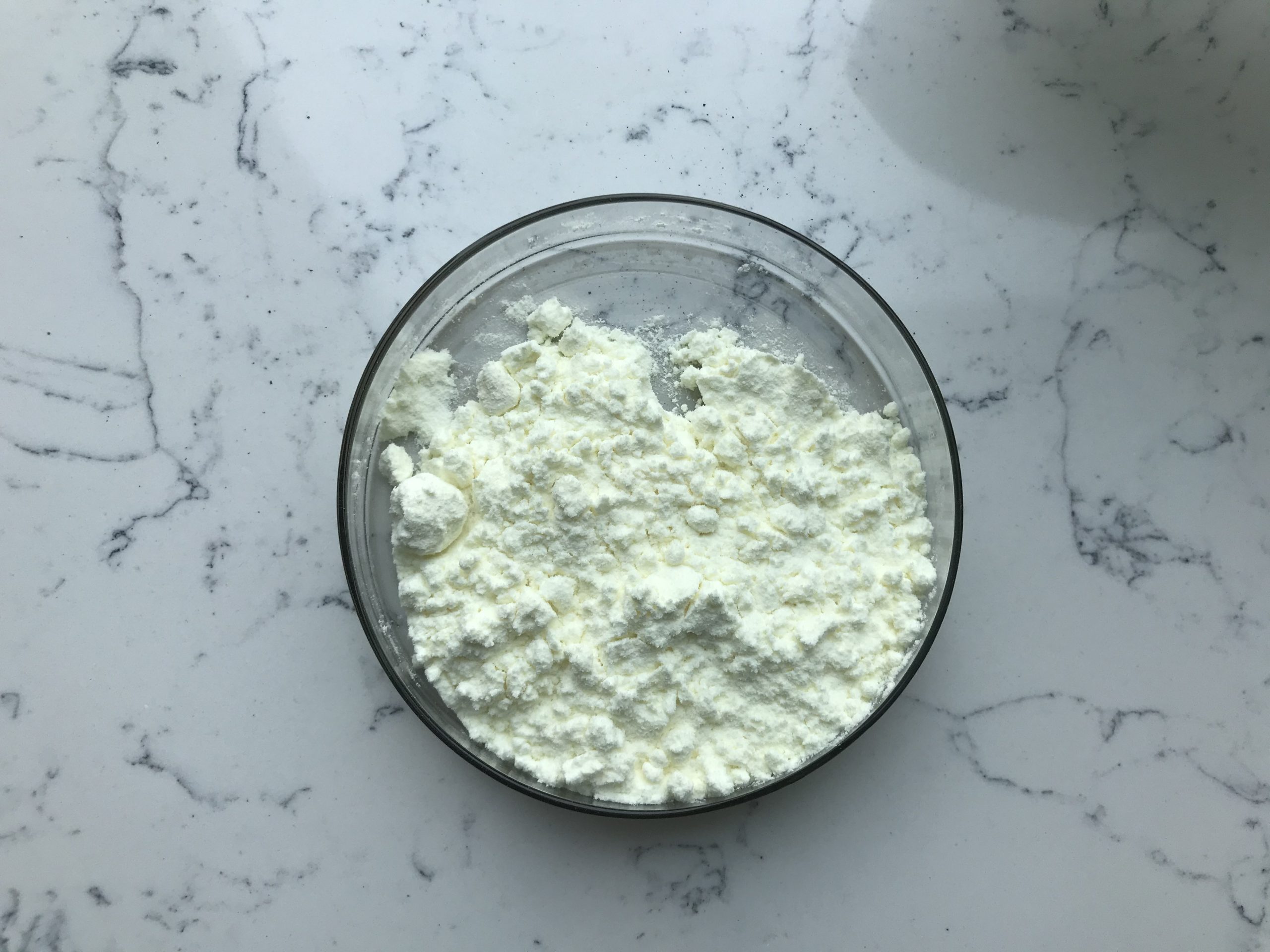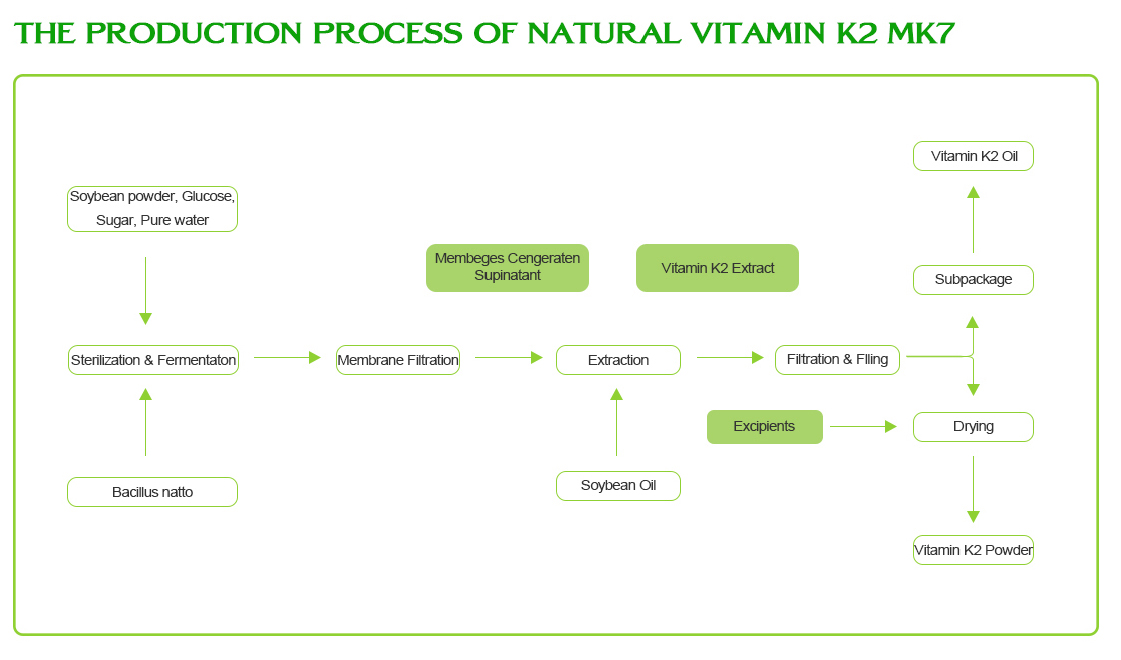Vitamin K2, also known as menaquinone, is one of the two main forms of vitamin K, the other being vitamin K1 (phylloquinone). Vitamin K is a group of fat-soluble vitamins that play a crucial role in blood clotting, bone health, and various other physiological processes in the body. Vitamin K2, in particular, is known for its role in bone metabolism and cardiovascular health.
There are several subtypes of vitamin K2, with the two most common ones being MK-4 (menaquinone-4) and MK-7 (menaquinone-7). These subtypes are found in different food sources and are also synthesized by bacteria in the human gut.
The primary functions of vitamin K2 include:
Bone Health: Vitamin K2 helps regulate calcium in the body by directing it to the bones and teeth, where it is needed for bone mineralization. This helps improve bone density and reduce the risk of osteoporosis.
Cardiovascular Health: Vitamin K2 also plays a role in preventing calcium from accumulating in the walls of arteries and blood vessels. This can help reduce the risk of arterial calcification and may have a protective effect against cardiovascular diseases.
Blood Clotting: Like all forms of vitamin K, vitamin K2 is essential for the production of certain proteins involved in blood clotting. Without vitamin K, blood clotting would be impaired, and this can lead to excessive bleeding.
Sources of vitamin K2 include animal products such as meat, cheese, and egg yolks, as well as fermented foods like natto (a traditional Japanese dish), sauerkraut, and some cheeses. Additionally, the body can produce small amounts of vitamin K2 through the activity of gut bacteria.

It’s important to note that vitamin K2 deficiency is relatively rare in healthy individuals, as the body can typically produce enough and obtain it from a balanced diet. However, some people, especially those with specific medical conditions or dietary restrictions, may benefit from vitamin K2 supplements to support bone and cardiovascular health. If you are considering vitamin K2 supplements, it’s advisable to consult with a healthcare professional to determine the appropriate dosage and ensure it’s safe for your specific health needs.
How to use Vitamin k2?
Vitamin K2 is an essential nutrient that plays a critical role in bone health and blood clotting. It’s also important for cardiovascular health and may have other potential health benefits. Here’s how to use Vitamin K2 effectively:
1.Dietary Sources:
The best way to incorporate Vitamin K2 into your diet is through food sources. Foods rich in Vitamin K2 include:
Fermented dairy products like cheese, especially hard cheeses like Gouda and Brie
Meat, particularly liver and other organ meats
Fatty fish like salmon and mackerel
Egg yolks
Natto, a traditional Japanese dish made from fermented soybeans
Certain vegetables like Brussels sprouts, kale, and spinach
2.Supplements:
If you have a Vitamin K2 deficiency, your healthcare provider may recommend a supplement. It’s important to consult a healthcare professional before starting any supplement regimen, as they can help determine the appropriate dosage based on your individual needs. Common forms of Vitamin K2 supplements include menaquinone-4 (MK-4) and menaquinone-7 (MK-7). MK-7 is often preferred for its longer duration of action in the body.
3.Dosage:
The recommended daily intake of Vitamin K2 can vary depending on your age, sex, and specific health conditions. A common dosage for MK-7 supplements is between 100 to 200 micrograms (mcg) per day. However, your healthcare provider will provide specific guidance based on your needs.

4.Combining with Vitamin D:
Vitamin K2 works in synergy with Vitamin D, as they both play a role in bone health. Vitamin D helps with calcium absorption, while Vitamin K2 helps direct the calcium to where it’s needed, like the bones, and away from areas where it can be harmful, such as arterial plaques. Therefore, consider maintaining a balanced intake of both vitamins for optimal health.
5.Caution:
Excessive Vitamin K2 supplementation is generally not recommended unless advised by a healthcare professional. Excessive intake may interfere with certain medications or medical conditions, so always consult your doctor before making significant dietary or supplement changes.
6.Monitoring:
If you have specific health concerns or conditions that require Vitamin K2 supplementation, it’s important to have your Vitamin K2 levels monitored regularly by a healthcare provider to ensure you are getting the right amount.
In summary, Vitamin K2 can be obtained through a balanced diet, and if necessary, through supplements with guidance from a healthcare professional. Always consult your doctor before making significant changes to your diet or supplement regimen, especially if you have underlying health conditions or are taking medications that may interact with Vitamin K2.
